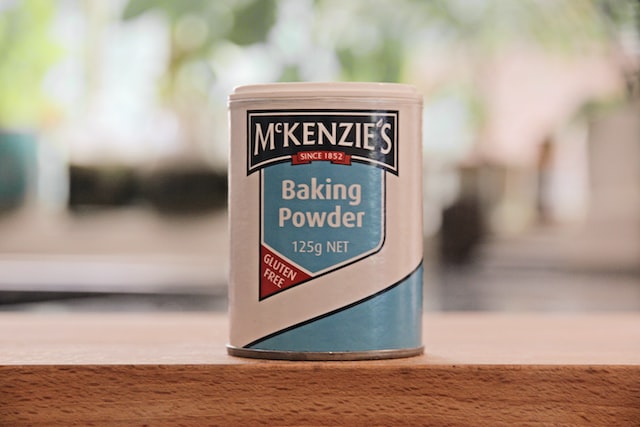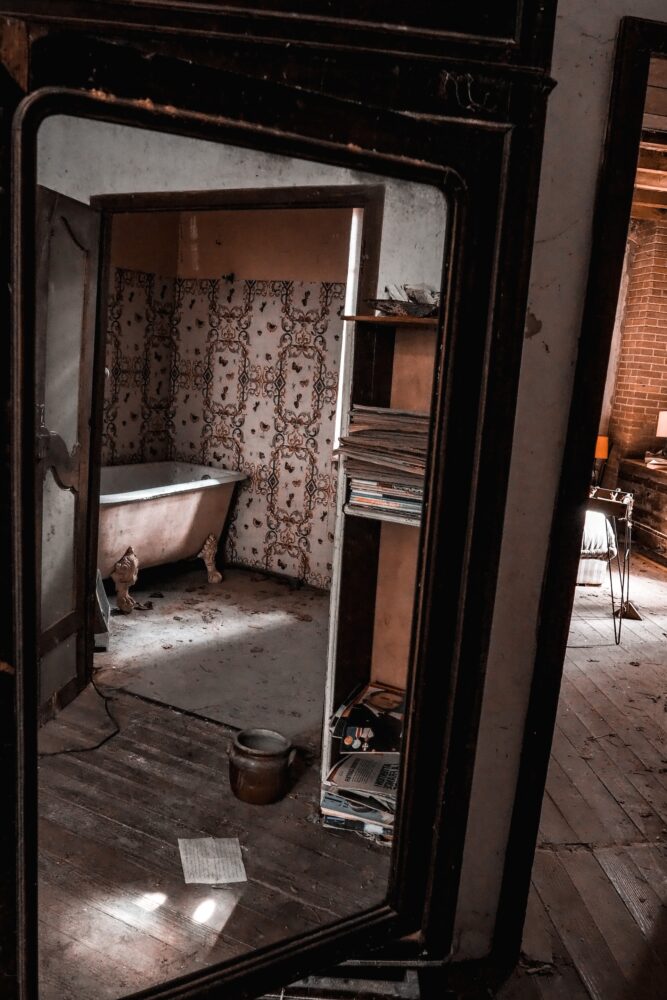If you’re having problems with a rust stain in your bathtub, there are a few things you can do. But before you begin, you’ll need to find out the type of rust that’s causing the problem. Once you have that out of the way, you can move on to removing the rust stain. You can do this by using a Magic Eraser or by using baking soda and vinegar.
Baking soda
Baking soda is an excellent natural cleaning substance that can help you remove rust stain from bathtubs. It can also be used to counter unpleasant smells. In addition, baking soda can be used to clean showerheads, drains and tubs.
When it comes to removing rust stains from the bathtub, you need to be careful not to scratch the porcelain surface of your tub. Over scrubbing a rust stain can cause permanent scratches to the tub. Instead, use a soft brush to gently scrub the rust stain away.
Baking soda can be combined with distilled white vinegar to create an effective cleaning solution. The vinegar adds extra cleaning power and the soda helps to break up any clogs in your drain.
Another method of removing rust from the bathtub is to use a pumice stone. You should not use a pumice stone on a fiberglass tub, however. A pumice stone is a rough and unpolished rock that can scrub rust off of metal surfaces.
Another popular way to remove rust stains is to mix cream of tartar with hydrogen peroxide. This makes a paste that you can rub on the stain. Once the mixture is absorbed, you can rinse it off with a damp cloth.
Another option is to combine salt with lemon juice. Lemon juice contains citric acid. Salt is good at soaking up the acid. You can also use table salt to treat the rust. Combined with lemon juice, the two ingredients make a thick paste that can sit on the rust stain for several hours.

Another way to remove rust is to use sandpaper. If your rust stains are light, a sandpaper scrubbing pad is a great choice. But if they are more serious, you can use a scrubbing brush or even a nylon brush.
Finally, there are commercial rust removers available. These products can be purchased at home improvement stores and online. They can be very effective, but they aren’t always safe for your skin. Many contain chemicals that can be toxic to humans and the environment.
Vinegar
If you are suffering from rust stains on your bathtub, you should try some vinegar to remove them. Vinegar is a powerful stain remover. It can be used to clean a rust-stained bathtub, sink, or shower head.
You can also use a scouring pad to remove light rust stains. Be sure to dampen the scouring pad before using it. This will help avoid scratching the surface of the tub.
Using a commercial rust remover is a good idea, especially if you are dealing with heavy-duty rust. These can be found at your local retail store or home improvement center. Make sure to read the label and follow the instructions for proper use.
A scrubbing brush is also a great tool to use to remove rust. Those who have porcelain or acrylic tubs should avoid using a wire brush. They can corrode the surface of the tub.
Baking soda is another great ingredient for cleaning a rust-stained bathtub. Mixing baking soda with water can create a thick paste that can easily be applied to rust stains. Once the paste is spread on the stain, wait for it to dry. Then wipe it off with a clean cloth.
Another natural cleaner is lemon juice. Lemon juice contains citric acid, which can work wonders for removing rust. Use a small amount of lemon juice and a little salt to make a paste. Place the mixture on a stain and let it sit for at least 10 minutes. Rinse with warm water.
WD-40 Multi-use Product is an effective rust remover. This can be found at any home improvement center or hardware store. Leaving the WD-40 Multi-use Product on a rust stain for at least ten minutes should be enough to remove the stain. After it has dried, rinse it with water to get rid of any chemical residue.
A soaking in a bath can be a relaxing experience, particularly when you’re feeling run down. But the tub can quickly become stained by hard water. To prevent rust from forming, you need to keep your water soft and mineral-free.
Magic Eraser
If you have a bathtub with rust stains, you may want to consider using a magic eraser to clean it. However, you should be aware that you can damage the surface with too much pressure. You should also be aware that most commercial rust removers are not safe to use on skin. The best option is to try a natural method.
A magic eraser is designed to remove stains on a variety of surfaces. It is made of a plastic foam that contains microscopic air bubbles that act as an absorber. To apply the eraser, simply rub it over the stains. When the bubbles start to break up, you can rinse off the area and see a noticeable difference.
While a magic eraser is designed for many uses, it’s important to note that you should only use it on non-scratchable surfaces. That includes fiberglass bathtubs, as well as acrylic tubs.
Magic Eraser can also be used to restore damaged walls. Scuffed walls aren’t pleasant and can detract from the look of your house. However, a magic eraser can be used safely to restore a wall’s luster.
Using a scouring pad can help with light rust removal. You can purchase these pads at home improvement stores. They usually come with a sponge on one side. Make sure to dampen the sponge before scrubbing.

Another option for removing rust is to use baking soda and water. Mix these ingredients together and rub the stains with a cloth. Leave the paste on the rust stains for about an hour. After that, wipe off the paste with a wet cloth. This method can be used to remove soap scum as well.
If the stains don’t go away, you may have to use an abrasive cleaner. Rust stains contain iron oxide particles. These are tiny pieces of iron that get embedded in the paint.
Some people prefer to avoid using abrasive cleaners because they are very harmful to their skin. In fact, most abrasive cleaners contain chemicals that are toxic to your skin. So, you should only choose abrasive cleaners if you can’t find a way to remove rust without using abrasives.
Whink Rust Stain Remover
Whink Rust Stain Remover is a rust stain remover that is designed to fight rust stains in bathtubs. You can use this product on a variety of surfaces. It works to dissolve stubborn rust stains without the need for heavy scrubbing.
Whink Rust Stain remover is made with Active Cling Technology that clings to the stains to dissolve them. This ensures that the stains are removed quickly and easily.
You should always read the manufacturer’s instructions before using any product. For instance, you should never use Whink with acidic cleaners. If you do, it can damage your skin and cause respiratory problems. Wear protective clothing and face shields when handling Whink.
Whink rust stain remover is safe to use on porcelain, metal, and colorfast fabrics. If you are not sure whether a fabric is colorfast, you can test it on a small area.
Rust can appear on a wide variety of surfaces, including patios and siding. Water dripping from faucets can also cause rust stains. These can be especially noticeable in homes with well water.
Another natural method for removing rust stains is to use lemon juice. You can purchase lemon juice in a bottled form or use lemons from your own garden. Just apply the juice to the rust stain and let it sit for several hours. After it has been absorbed by the rust, rinse the rust stain with cold water.
Borax is a good all-purpose household cleaner that you can use to remove rust stains from porcelain. Borax can be mixed with water to make a paste. Apply the paste to the rust stains, and leave it on the stains for at least an hour. Then, wipe the stains clean with a microfiber cloth.
Some people recommend using baking soda instead of salt to remove rust stains. Baking soda is a great natural abrasive. Using a mixture of baking soda and lemon juice is another way to remove rust stains.
Whink is an effective rust stain remover, but it does not work on all types of stains. Make sure you read the instructions closely to avoid causing your skin or eyes harm.
